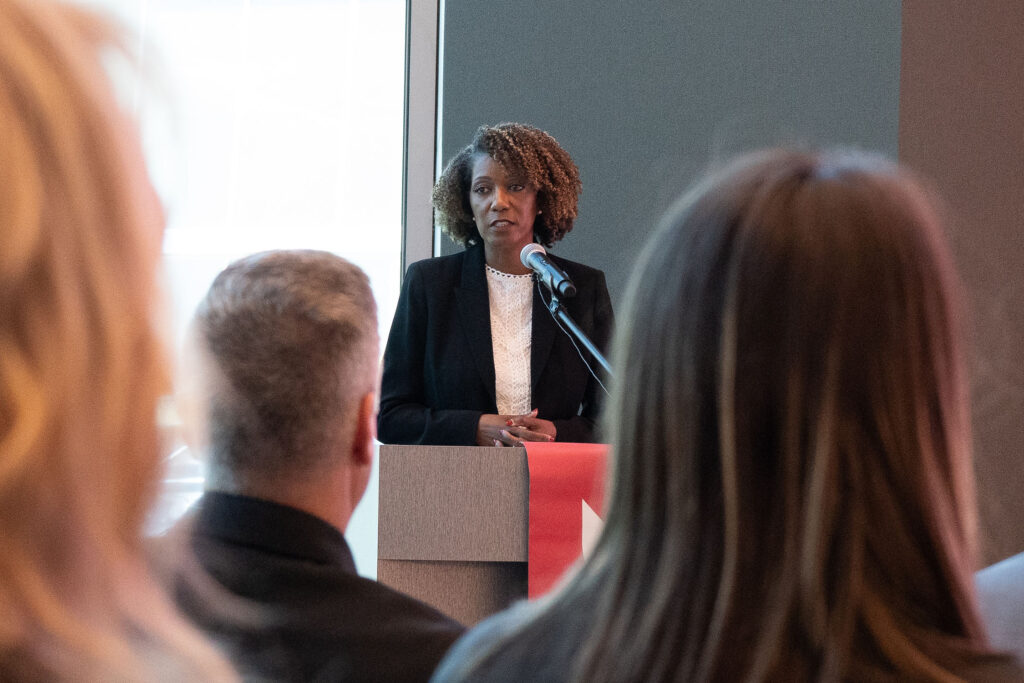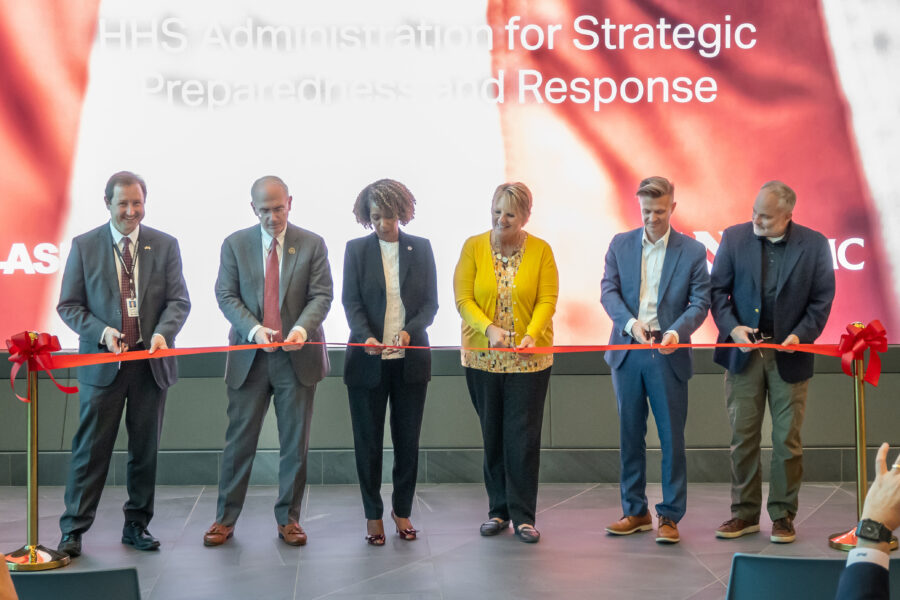UNMC, the Global Center for Health Security and the Administration for Strategic Preparedness and Response (ASPR) at the U.S. Department of Health and Human Services held a ribbon cutting Sept. 14 to mark the opening of the national Training, Simulation and Quarantine Center at the Davis Global Center.
The celebration came nearly four years after the TSQC opened.
The delay is understandable. This is about the first time the entities involved have been able to catch a breath since the Davis Global Center opened its doors, and the TSQC became operational, in October 2019.
“The first call to activate came in January 2020,” recalled John-Martin Lowe, PhD, assistant vice chancellor for health security training and education and director of the GCHS.
The timing was impeccable. The TSQC, created to help the nation deal with and train for emerging threats, was on the front lines from the very beginning of what would become a global COVID-19 pandemic.

“And so, the ribbon cutting was not late,” said Nikki Bratcher-Bowman, principal deputy assistant secretary for preparedness and response and COO of ASPR. “This celebration was right on time.
“Although it was delayed, this timing is absolutely perfect. It is even more meaningful because of the many successes that have happened since then – several of them just in the first six months.”
“It’s hard to remember how fast those weeks and months passed here,” said UNMC Chancellor Jeffrey P. Gold, MD.
Dr. Lowe recalled two particularly notable early accomplishments: A landmark study on how SARS-CoV-2 is transmitted and the nation’s first clinical trial of the antiviral drug remdesivir.
These successes, and others, were made possible by UNMC’s relationships with U.S. federal agencies, including HHS and ASPR, and the acceptance of repatriated Americans from Wuhan, China, and the Diamond Princess cruise ship. And UNMC and Nebraska’s willingness to say “yes.”
“That willingness, and those relationships, go back to the 2014 Ebola crisis and beyond,” Dr. Gold said.
Dr. Gold recalled sitting in the governor’s office with Phil Smith, MD, now retired medical director of the Nebraska Biocontainment Unit, and weighing the responsibility of caring for Ebola patients evacuated from Africa. UNMC and Nebraska said “yes.”
“That tested the commitment of our faculty and staff and a community that has embraced our role in health security,” Dr. Gold said.
“It cemented our relationship with ASPR,” he said.
Sec. Bratcher-Bowman agreed: “We were able to make that phone call, and you answered. Not once, but twice, and over and over again,” she said.
This partnership is crucial “to ensure our nation is prepared and able to address manmade and natural hazards,” she said. That partnership endures.
“Today is a milestone in a 20-year commitment to health security,” Dr. Lowe said.
And then they cut a ribbon to celebrate the opening of the TSQC, four years later, and right on time.
